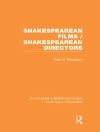Gotthold Ephraim Lessing’s ‘Minna von Barnhelm’ stands as a significant contribution to the emergence of German drama in the 18th century, intertwining themes of love, loyalty, and the complexities of human emotions against the backdrop of the Seven Years’ War. Lessing employs a blend of comedy and serious reflection, utilizing rich dialogue to explore the interplay between social class and personal integrity. The characters are vividly drawn, embodying the contradictions of their time, particularly the societal expectations faced by women, showcased through the titular character, Minna, who challenges norms with her spirited independence and intelligence. Lessing, often hailed as a pioneer of modern drama, drew from his background in Enlightenment thought, advocating for reason and humanity amidst the chaos of war and societal strife. His engagement with the philosophical currents of his time, including Rationalism and Humanism, fueled his desire to portray authentic human experiences. ‘Minna von Barnhelm’ reflects his deep commitment to questioning moral values and the importance of personal honor, undoubtedly influenced by his own encounters with the tumult of 18th-century German society. This play is highly recommended for readers interested in an exploration of character-driven narratives that resonate with timeless issues of societal constraint and individual agency. Lessing’s deft blend of humor and pathos not only entertains but encourages reflection on the nature of relationships and moral choices, making ‘Minna von Barnhelm’ a pivotal work for both literary scholars and general readers alike.
Sobre el autor
Gotthold Ephraim Lessing (1729-1781), a prominent figure of the German Enlightenment, was a versatile literary artist known for his work as a dramatist, critic, and philosopher. Heralding a shift toward a more modern approach to drama and aesthetics, his writings significantly influenced the development of German literature. Born in Kamenz, Saxony, Lessing displayed a proclivity for the arts early on, ultimately moving to Berlin to immerse himself in the burgeoning literary scene. Lessing’s play ‘Minna von Barnhelm’ (1767) is regarded as one of his masterpieces and a seminal work in the German theater. Set against the backdrop of the Seven Years’ War, the play illustrates themes of honor, love, and national identity through the lens of comedy, marking it as a precursor to nationalism in literature. Lessing’s astute understanding of human nature, trenchant social commentary, and employment of the play as a didactic tool exemplify his overarching commitment to the Enlightenment ideals of rationality and progress. His literary style, which combined wit with a profound moral sense, paved the way for subsequent generations of German writers. In addition to ‘Minna von Barnhelm, ‘ Lessing’s notable works include ‘Laocoön: An Essay on the Limits of Painting and Poetry’ (1766) and ‘Nathan the Wise’ (1779), both of which further establish his legacy as a key architect of modern German literature.












